How Did Delhi’s Migrants Survive Lockdown?
By Mrinalini Sarkar and Andrew Francisco
On the evening of March 24th, 2020, Prime Minister Narendra Modi announced that all of India’s 1.3 billion people were, unless essential to the fight against coronavirus, ordered to stay home. “Every state, every district, every lane, every village,” he declared, “will be under lockdown.” The measure would begin at midnight. Markets and factories were shuttered, restaurants and construction sites were abandoned and places of worship largely emptied.
The threat posed by contagion is extremely serious in India, a country often lacking in even basic health infrastructure -- There are only 0.5 beds per 1000 people according to the Organization for Economic Cooperation and Development. But a sudden, universal shutdown brought with it the threat of starvation for many of Delhi's migrants, some of whom have come here with little job security, savings or access to social services. The coronavirus pandemic has, among other things, demonstrated the fraught nature of India’s unsustainable migratory trend, in which freedom of movement to and from urban centers is a major source of power and individual agency, but also finds hundreds of millions existing in increasingly competitive cities with little or no safety net.
While the well-heeled and those in the knowledge economy retreated to their apartments with reading lists and banana bread recipes, the situation differed elsewhere. Those who would normally be looking for daily work at one of Delhi’s numerous labour mandis were rendered jobless and at the mercy of their landlords overnight. Throngs of newly displaced waited for buses and trains that were hopelessly packed. Many decided to return to home villages on foot, braving the heat, long distances and police checkpoints in scenes that were likened to Partition or the Bengal Famine. “... Because Modi’s government failed to anticipate the exodus, it had jeopardised the lives of those it was anxious to save,” wrote Congress MP Shashi Tharoor.
Rajendra Singh runs a sweets shop in Mandawali, a working class neighborhood in Delhi. Following the lockdown, the 33-year old closed his shop and left the sweets to perish. He set out on foot to his village in Firozabad, Uttar Pradesh, 240 km from Delhi. “It took me 72 hours,” he said. “I got there on the third day. No one would let us stay, so we rested under trees during the day and walked all night. I know that in doing so, I violated the lockdown, but what else could I have done?”
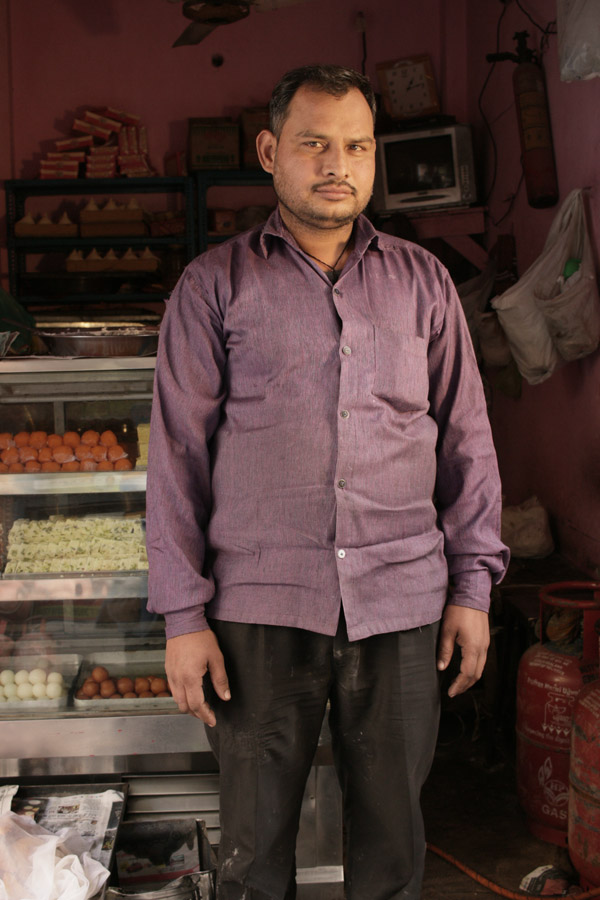
Relief measures have included relatively small cash payments in some states as well as rations of staple food items. Some of these measures have been designated specifically for migrants and other groups who may not have access to other relief. State governments have also offered assistance to those working in specific sectors, for example construction workers in Punjab. But some, including Mr. Singh, may be left out. “Now there is no employment under MNREGA (the 2005 Mahatma Gandhi National Rural Employment act which aimed to provide a “right to work”), and even if there was, I am not eligible for a ration card or other government provisions because I have a job in the city.”
Vikram Singh, a 35-year-old cook who works in a hotel in Paharganj, managed to board a bus from Delhi’s Anand Vihar station to his village in Uttar Pradesh. “I’ve heard rumors that the Prime Minister has deposited 500 INR into everyone’s account, but I have not yet checked. I will go to the bank tomorrow, but the police are everywhere and hit us with their sticks at first sight. How will I get to the bank?” Since the beginning of the lockdown, multiple reports of police beatings have surfaced, some resulting in fatalities.

Lalita Devi, 25, who makes garlands from her home on a per-piece basis, had no choice but to stay in Delhi with her family. “I went into lockdown with my husband and children in Mandawali. How could I make it to Darbhanga [Bihar] on foot? We have no income here anymore, and have to depend on the landlord who gave us five kilos of rice and five kilos of wheat. But how can I expect him to keep helping us?”
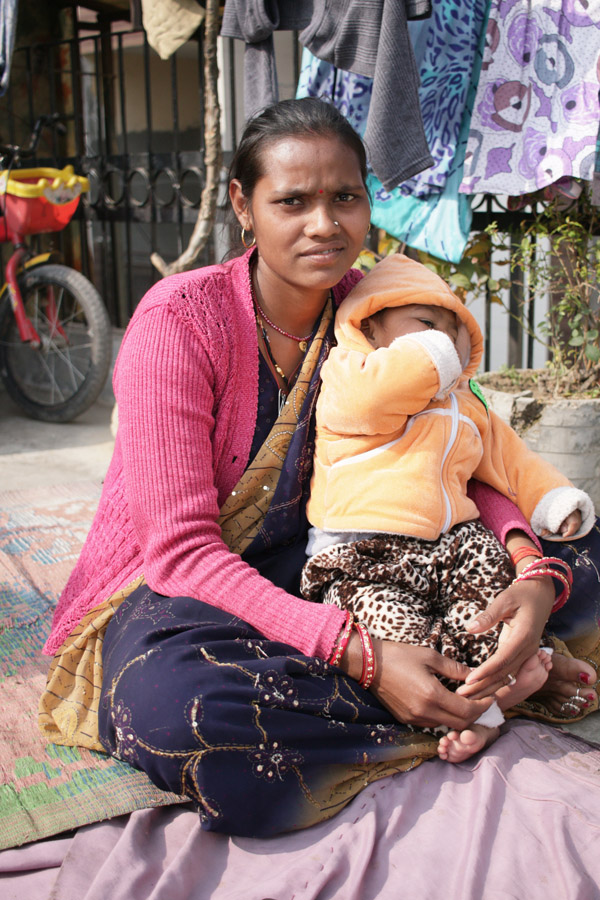
In March of 2020, Economist Jean Drèze called on the Indian government to release and distribute stockpiles immediately. “There are always people, starting with migrant workers, who fall through the cracks of the established social-security schemes. We need an emergency facility in every state where people can go and get some food on the spot, without having to show ration cards or any documents,” he said to The Caravan.
Life in congested, polluted Delhi may have even less allure than previously for those from India’s smaller cities and villages. Nonetheless, India's post-corona era will likely be much the same for migrants, whose personal preferences will mean little in the face of economic compulsion. The best case scenario would be one in which India’s leadership recognizes the challenges experienced by migrants in Delhi and other cities across the nation, whose labor has by and large sustained the country’s recent economic growth. If efforts are not made to address their problems, how many can expect to survive the next crisis?
The documentary
Native Place is a film about movement and economic competition, told through the stories of those who have come to Delhi to earn. From day laborers to a stock broker, these characters are all compelled by the push and pull of the need to make a living. By following some of these individuals back to their hometowns, Native Place reveals the deepest disjunctures of capitalism, in which even apparently settled workers feel mentally and physically divided between the lives they lead and the lives they wish to lead. Native Place presents migration as less of a choice and more of a necessity, a question that is answered not by a decision to either go or not go, but rather where and for how long.
See a clip from the film.
Personal Histories
The following interviews were recorded in early 2019, more than a year before the coronavirus crisis. Some of the participants describe their lives here in terms of aspirational fulfillment, others find their situation more temporary and challenging. Nearly every respondent, however, describes a deep personal connection to their hometown. Their stories demonstrate that, for nearly everyone, migrating constitutes a type of displacement. Many of the interviewees live here without the kind of social safety net that comes with permanent settlement. Some have passed away due to the coronavirus and many were unreachable after lockdown. These interviews, with a few exceptions, were translated from Hindi and all have been edited for clarity and length.
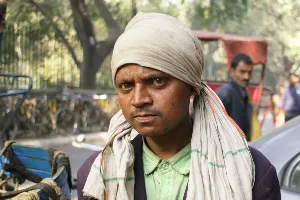
When I arrived, my father said that if I could not get any work, then I could do a construction job or go stand at the intersection.
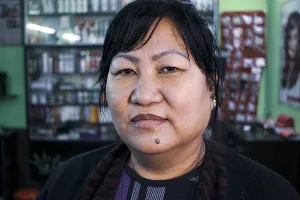
Back home we couldn't find a job... Plus, they are under [constant threat of] terrorism. So, for surviving I came in Delhi.
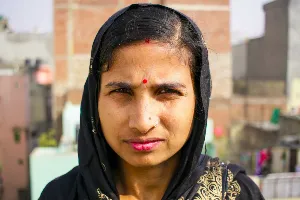
I don’t do anything as such, trust me. I just play with my child. My husband doesn’t even let me do anything.
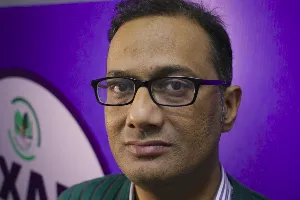
I remember even today, my story being printed in Sarita. And for that reason... I got a severe beating.
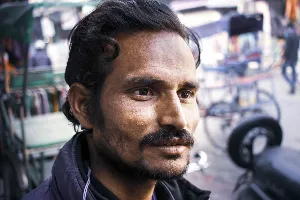
I came to Delhi to find a job. I am a handicapped person but I’m ashamed to beg for money. So, I came here to work hard and earn.
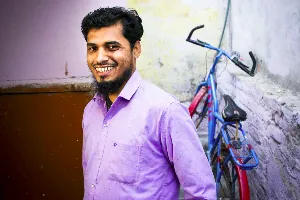
I’d like to do something that would allow me to go back home. I’d like to go home and live a peaceful life at ease.
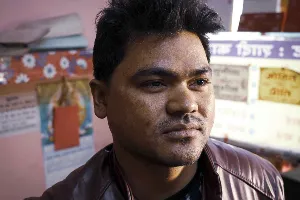
He said, "Come with me. I’ll get you a job." I have changed quite a few jobs after that one. That’s how I finally got here.
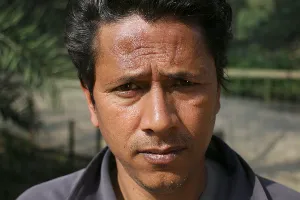
There’s no job that’s good or bad. You need to work hard no matter what job you’re doing. But I think all work should be paid at a decent wage.
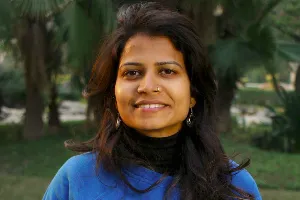
I always wanted to teach. I enjoy teaching. Just helping a person grow, in any way, is my ideal job.
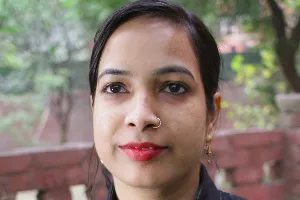
Many times I feel I don't want to go to office. No no, I don't want to do this job. But then I ask, ‘What kind of job would you love to do?’ And I have no answer.
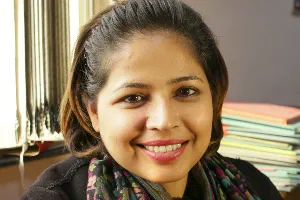
I'm so confused right now. For two, three months I'm just thinking, what am I doing in Delhi? I should be going back.
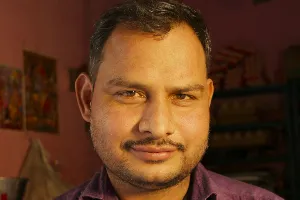
I think this is the only work for me now. I have reached an age now where if I try and take up some new work, I may not succeed with it.

I wanted to do something in the hotel line so I came here. ‘It will be good for me to come here,’ this is what I thought.
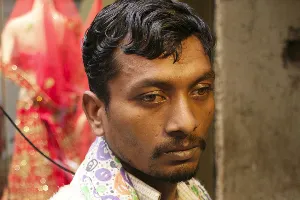
I have a lot of debt but do not have enough money to repay. I am living in Delhi in order to pay back the debt.

[For how many years have you been doing this work?] It is the same as my age. I have been doing this work since I was born.

I feel all work is good. It depends upon what you know and what you can do or what you want to do.

I am not an educated person, so any job that I could get would be uninteresting. There’s no interesting work for me, I guess.
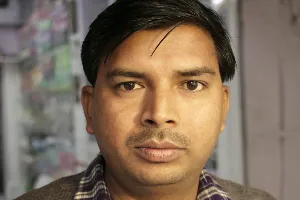
Whatever happens, things will get better, and I will try to do better and I will keep on working hard and get ahead in life.

...My children must get a good education. I will not let them do what I am doing. They must study and do something better.

I was carrying a heavy load on my body. And my hand slipped, and I fell down between the platform and the track.

I have used up enough of my life by now. Now how many more years of life remain? At most another 20 years? Not more than that.

If you are in Delhi and have no job and have no place to live, even then one can still survive here, can eat here.

I think it would be great if I could land a government job by any chance. Of course, according to my qualifications and skill level.

I met with an accident. After that, my boss told me, “You go get some rest.” Then I saw someone doing this work.
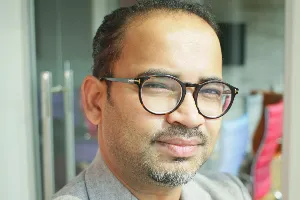
This is the kind of work which I always wanted to do, so I'm really passionate about my work and I really enjoy my work.
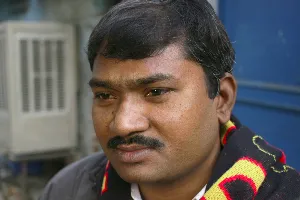
It is not about liking or disliking [one's job]. It is about earning one’s bread and butter, which is more important.

What do I think about? I can’t carry on like this. Maybe I should do something else? That’s what I think about.

If one has enough money, they can do any work. Maybe establish his own shop, one can do anything.

For a year or two now, the market has been very depressed. Therefore, I am thinking of living in the village.
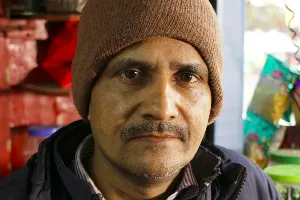
What is special? I have to work hard. The children’s education. If that is fulfilled, it is enough.
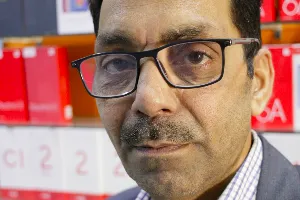
I had a habit of taking off. I wanted to go somewhere, but there were things holding me back over there.
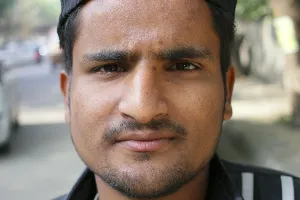
An interesting job would be something that offers decent income to live comfortably, have two good meals a day and for savings, too. That’ll make me and my family happy.
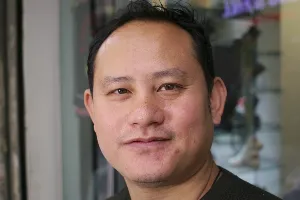
I'll be going back, probably within 2, 3 years. I'm planning to go back and start my own [business] there.

I came to Delhi at the age of 13 or 14 years, and I directly started with this kind of job. No one has given me any chance in any other line. So how would I do any other job?

I want a very professional environment where people do not really mind what you do in your personal life.
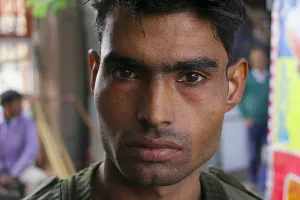
Those who have good businesses rarely come here. Only those who don’t have good work come here.
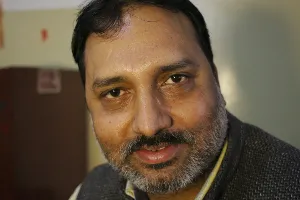
I do not want to do any work other than teaching. I only like this work. It is my passion, too.
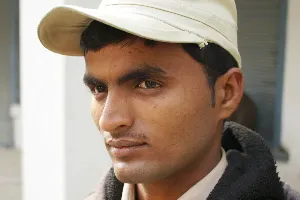
I only think about how my family will manage. I am getting such a small amount – how will my family proceed any further?
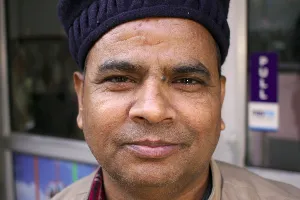
Actually, I have done a course in journalism. First, I did a course in TV journalism. Then I did my master’s in mass communication. Here, the job opportunities were plenty.

I will take a timely retirement and after that engage myself in service to the world. [Will you retire at age 60?] Absolutely. I am determined. It does not usually happen. But I am determined.
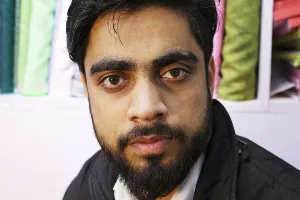
In my thinking, in the future, I have to serve the people... I will leave [this work] and raise goats and keep poor people there with me. This is the kind of work I want to do.
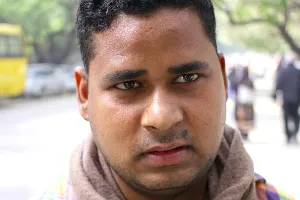
I keep thinking of getting a better job so I can start earning better, eating better. I think about it but it doesn’t happen. What should I do?

I'll give you one example. You don't have a sanitary establishment at your hometown. Like at your village home. But out here you like want to poop on a western pot. I think these kinds of things are very fussy.

I’d like to open a better dhaba than this one, if I have the money. For now, I don’t have the money to do that. That’s the reason I’m facing problems.

Sir, everything is good in its own way. But if I get a decent job anywhere, it’s fine. If I get into a factory that would be great. Any field is fine with me, one that offers a decent income.